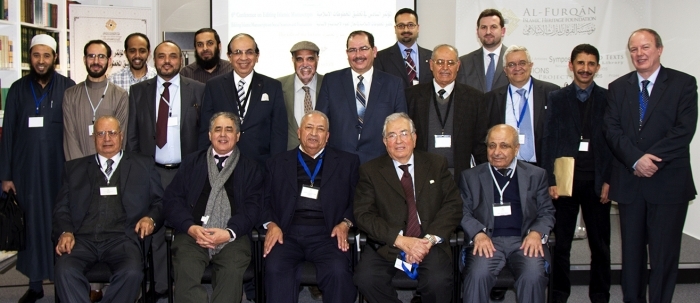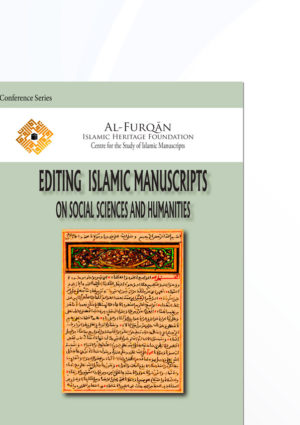As part of its continuous activities over 25 years, Al-Furqān Islamic Heritage Foundation held its Sixth Conference on Islamic Manuscripts, under the title: “Editing Islamic Manuscripts on Social Sciences and Humanities”.
The conference was organised by the Al-Furqān’s Centre for the Study of Islamic Manuscripts and it took place on Tuesday the 26th and Wednesday the 27th of November 2013, at the Foundation’s London headquarters.
The five previous conferences covered the following topics: “The Significance of Islamic Manuscripts”; “The Codicology of Islamic Manuscripts”; “The Conservation and Preservation of Islamic Manuscripts”; “Editing Islamic Manuscripts on Science” and “The Earth and its Sciences in Islamic Manuscripts”.
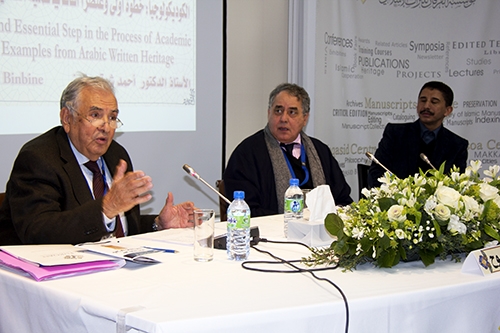
Nearly 60 experts and highly qualified scholars attended the conference. They represented a wide range of interests and work at various universities and institutions in the UK. The contributors and researchers, who came from all parts of the world, were prominent scholars in the field. Their research papers dealt with the present status and future developments in the field of editing Islamic manuscripts on social sciences and humanities.
Among the lecturers at the conference were: Professor Abdullah Yusuf al-Ghunaim, Professor Bashar Awad Marouf, Professor Ibrahim Chabouh, Professor Ahmed Chouqui Binbine, Professor Abdelhamid Madkour, Professor Ayman Fuad Sayyid, Professor Mohamed Elsayed Elgelined, Professor Maroun Aoaud, Professor Enes Karić and Dr. Khalid Zahri.
The titles of the conference papers were as following: “On the Critical Edition of Abī ‘Ubayd al-Bakrī’s “Mu‘jam ma Ista‘jam’’; “Ibn Khaldūn’s Methodology in Setting and Developing his Primary Book of al-‘Ibar (al-Muqaddimah): A Study Based on Verified Hand Written Sources of the Author”; “Critical Edition of Manuscripts on Sufism: ‘al-Futūḥāt al-Makkiyah’ as an Example”; “The Art of the Critical Edition of the Written Heritage: A Fundamental Study - The Letters of al-Imam al-Ashʿarī and al-Ghazālī as Examples”; “The Critical Edition of Manuscripts in Sciences of Theology (ʿilm al-kalām): Errors and Categories”; “The Methodologies of the Critical Edition on the Social Sciences; Reconstructing Lost Ancient Texts - Sources of Egyptian History as Examples; Arabic and Syriac Manuscripts in the Mediterranean: Methodology and Some Results”; “The Codicology: A First and Essential Step in the Process of Academic Critical Editing - with Examples from Arabic Written Heritage”; and “Editing Islamic Manuscripts on Social Sciences and Humanities in Bosnia and Herzegovina”.
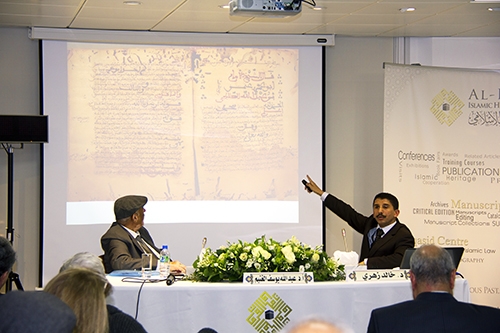
The conference sessions were characterised by a high level of effectiveness and depth, with moderators playing a significant role in promoting interaction and keeping discussions to a high academic standard.
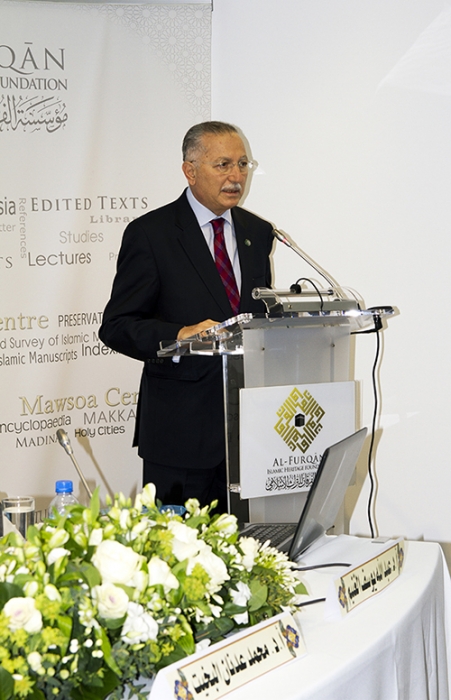
On the morning of Tuesday 26th November, Professor Ekmeleddin Ihsanoğlu inaugurated the conference with a welcome speech on behalf of Al-Furqān’s Board of Directors. He thanked the Foundation for organising such an important conference, and welcomed the attendees, contributors and guests. Then he gave a detailed introduction to Al-Furqān Islamic Heritage Foundation, explaining its aims and activities, by focusing on the previous conferences and their significance in raising the awareness of the Ummah’s heritage. Professor Ihsanoğlu said that manuscript conferences highlight the need for a new generation of researchers who are specialised in codicology and capable of critical editing of the heritage written texts.
Mr Sali Shahsivari, Al-Furqān’s Managing Director, welcomed the audience and emphasised the importance of the conference being one of the means of spreading the knowledge of the Foundation’s contribution to human civilisation.
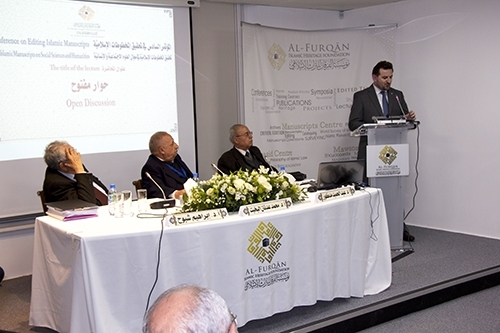
The conference concluded with a panel discussion, where panel members answered questions regarding technical issues, including the latest developments and issues in the field of editing Islamic manuscripts, as the audience included a considerable number of specialists interested in and working on Islamic manuscripts. Mr. Sali Shahsivari concluded the conference with words of thanks to the contributors and the members for their efforts in making the conference successful and presented a brief account of the Foundation’s plan of projects and activities for the coming year.
Conference guests also expressed their delight at taking part and wished the best to Al-Furqān, that it may pursue its services to knowledge and heritage.
